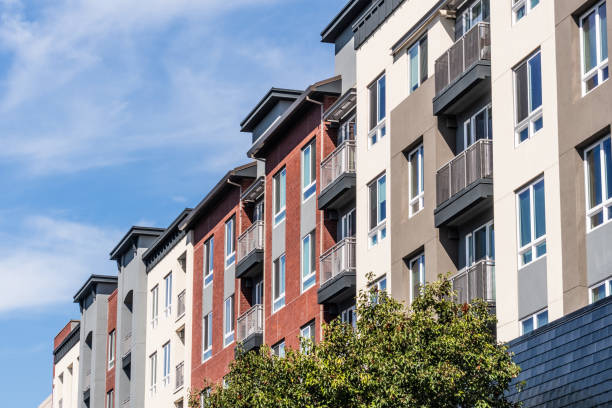Business
Properties you should never consider buying

All over the world, investment is not easy. As lucrative as real estate is, it takes a lot of financing. Now, after investing financial resources heavily, it will be unfair to invest in properties you should never buy in the first place.
When considering purchasing property in Nigeria, it’s essential to be mindful of certain factors to avoid making potentially problematic investments.
I will highlight the properties you should never buy in this article:
1. Properties with Unresolved Legal Issues:
Ensure that the property you’re interested in has clear and undisputed legal ownership. Avoid properties entangled in legal disputes, land boundary issues, or lacking proper documentation. Purchasing such properties can lead to prolonged legal battles or even loss of ownership rights.
2. Properties in High-Risk Areas:
Certain areas in Nigeria may be prone to natural disasters like flooding or erosion, or they may have a high crime rate. Investing in properties in such areas can pose significant risks to your safety and the value of your investment. Always conduct thorough research on the neighborhood’s safety and vulnerability to natural disasters before buying.
3. Properties with Structural Defects:
Inspect any property you’re considering purchasing thoroughly for structural integrity. Avoid properties with visible signs of damage, such as cracks in the walls, foundation issues, or poor construction quality. Investing in structurally compromised properties can result in costly repairs and compromise the safety of occupants.
4. Properties with Uncertain Development Plans:
Before buying property, inquire about the development plans for the surrounding area. Investing in areas without clear development prospects or with uncertain infrastructure plans can hinder your property’s appreciation potential. Additionally, consider factors like accessibility, amenities, and potential future developments that could impact the property’s value.
5. Properties with Environmental Hazards:
Be cautious of properties located near industrial sites, waste disposal areas, or contaminated land. Exposure to environmental hazards can pose health risks to occupants and devalue the property over time. Conduct environmental assessments or seek expert advice to identify any potential risks associated with pollution or contamination before making a purchase.
READ ALSO:Five-storey building collapses in Anambra, many feared trapped
6. Properties with Outstanding Liabilities:
Before finalizing a property purchase, ensure there are no outstanding debts or unpaid taxes associated with the property. Buying a property with unresolved financial liabilities can lead to unexpected financial burdens or legal complications. Request clearance certificates and conduct thorough financial due diligence to avoid such situations.
7. Properties with Incomplete or Illegal Structures:
Avoid purchasing properties with unapproved or illegal structures, such as extensions, additional floors, or encroachments. Such structures may violate building regulations and could be subject to demolition orders by the government authorities. Invest in properties with all structures properly permitted and constructed in compliance with local building codes.
8. Properties in Disputed or Unstable Regions:
Nigeria, like many countries, may have regions marked by ethnic, religious, or political tensions. Investing in properties located in areas prone to conflicts or instability can expose you to safety risks and potential property damage. Research the political and social climate of the region before considering any property purchase.
9. Properties with Poor Access to Basic Utilities:
Ensure that the property you’re interested in has access to essential utilities such as electricity, water, sewage systems, and internet connectivity. Properties lacking access to these basic amenities can significantly diminish their livability and resale value. Verify the reliability and adequacy of utility services in the area before making a purchase.
10. Properties in Declining or Oversaturated Markets:
Avoid investing in properties in markets experiencing declining demand or oversupply. Buying property in such markets can lead to difficulty finding tenants or buyers, resulting in prolonged vacancies or reduced rental income. Conduct market research to assess the demand-supply dynamics and potential for growth in the property market before committing to any purchase.
By: Dennis Isong
Join the conversation
Opinions
Support Ripples Nigeria, hold up solutions journalism
Balanced, fearless journalism driven by data comes at huge financial costs.
As a media platform, we hold leadership accountable and will not trade the right to press freedom and free speech for a piece of cake.
If you like what we do, and are ready to uphold solutions journalism, kindly donate to the Ripples Nigeria cause.
Your support would help to ensure that citizens and institutions continue to have free access to credible and reliable information for societal development.